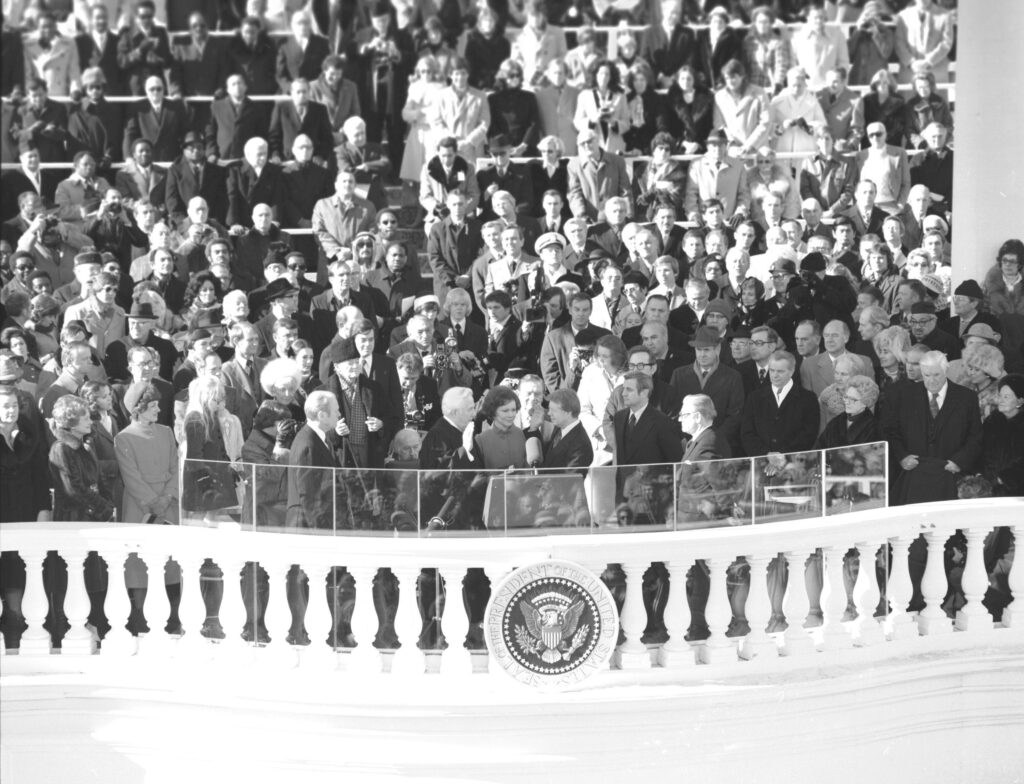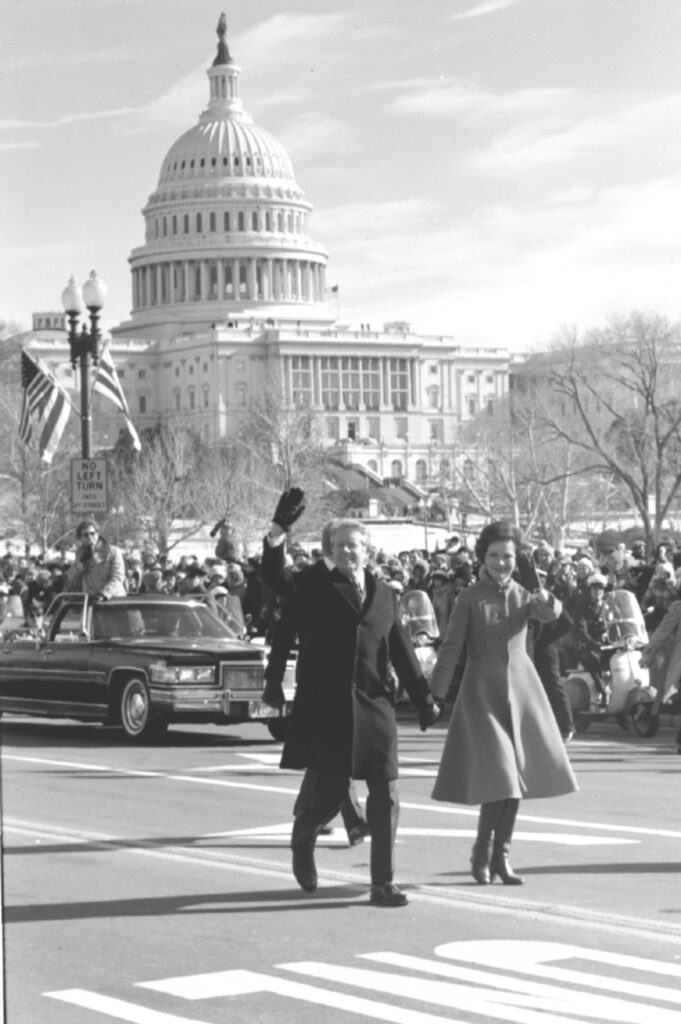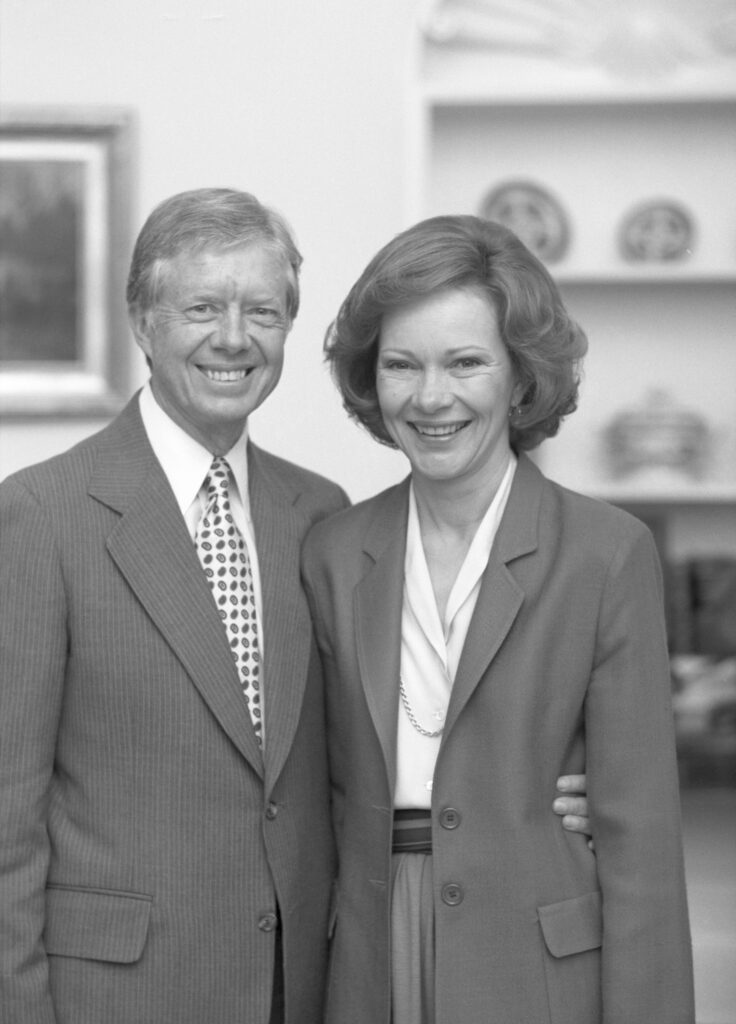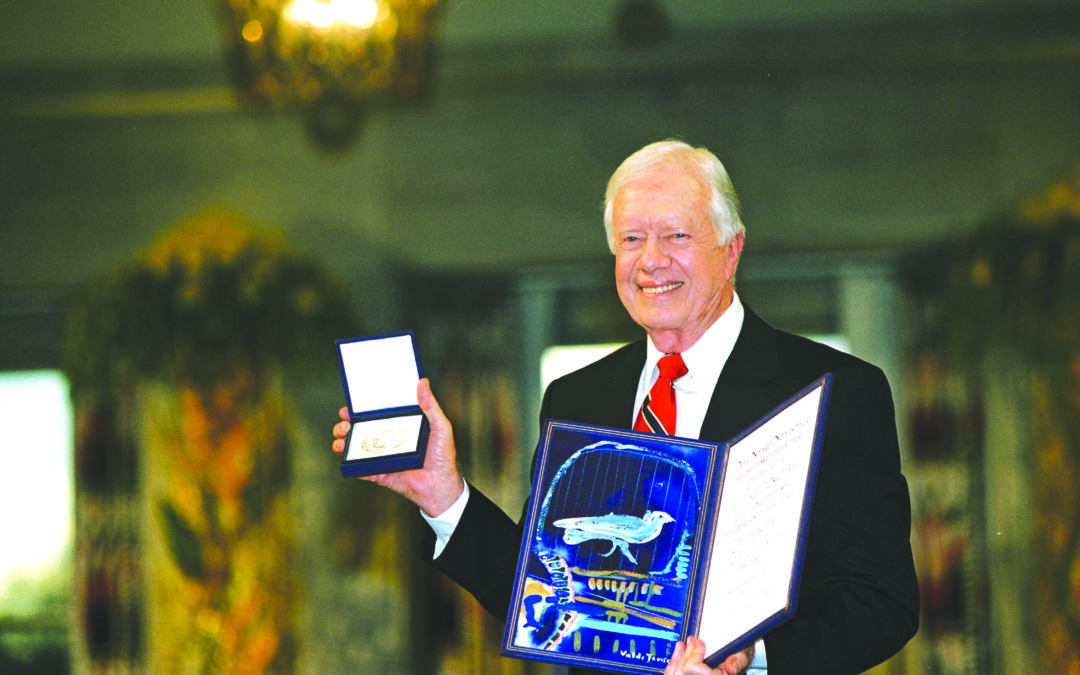CONTRIBUTED BY
THE CARTER CENTER
ATLANTA — Jimmy Carter, 39th president of the United States and winner of the 2002 Nobel Peace Prize, died peacefully Sunday, Dec. 29, at his home in Plains, Georgia, surrounded by his family. He was 100, the longest-lived president in U.S. history.
Carter is survived by his children Jack, Chip, Jeff and Amy; 11 grandchildren; and 14 great-grandchildren. He was preceded in death by his beloved wife of 77 years, Rosalynn, and one grandchild.
“My father was a hero, not only to me but to everyone who believes in peace, human rights, and unselfish love,” said Chip Carter, the former president’s son. “My brothers, sister, and I shared him with the rest of the world through these common beliefs. The world is our family because of the way he brought people together, and we thank you for honoring his memory by continuing to live these shared beliefs.”
There will be public observances in Atlanta and Washington, D.C., followed by a private interment in Plains, Georgia. The final arrangements for President Carter’s state funeral, including all public events and motorcade routes, are released by the Joint Task Force-National Capital Region at www.jtfncr.mdw.army.mil/state funerals.
Members of the public are encouraged to visit the official tribute website to the life of President Carter at www.jimmycartertribute.org. This site includes the official online condolence book as well as print and visual biographical materials commemorating his life.
The Carter family has asked that in lieu of flowers, donations be made to The Carter Center, 453 John Lewis Freedom Parkway NE, Atlanta, GA 30307.
An eyewitness account of Jimmy Carter’s inauguration



Left, Jimmy Carter was sworn in as President of the United States on January 20, 1977, by Supreme Court Chief Justice Warren Burger. Center, The Carters surprised onlookers when they left their car and walked down Pennsylvania Avenue during the Inaugural Parade on January 20, 1977. Right, White House portrait of President Jimmy Carter and Rosalynn Carter taken in the Oval Office on May 3, 1979. (Photo Credits: Jimmy Carter Library)
BY GREG MARKLEY
OPINION —
At 20 years old, I attended Jimmy Carter’s inauguration and wrote about it for my college newspaper. I also covered Ronald Reagan’s as a young reporter.
To pay for the nine-hour train trip to Washington, D.C., I took a job for the three weeks before my friend John and I departed for the nation’s capital. A big part of my workday was spent grabbing the gizzards from chickens and readying them for sale. It was not exactly a clean or fun job. But I was happy to be able to go to Washington, D.C., for the first time.
I had no idea so many consumers like chicken gizzards. After all, they are cut from the digestive tracts of chickens. The gizzard basically grinds up the foods the birds eat. Then the food proceeds to the stomach. Gizzards are popular worldwide. I only dealt with chicken gizzards for 20 hours a week. After those three weeks, even if the new president asked me, I did not want to even see a chicken.
As college writers, we did not have access to the same media credentials that CBS’s Dan Rather and the Washington Post’s Bob Woodward had. But we were inside the “rope line” and had good views of the inaugural parade. Nobody yelled out “Fake News” as they might now after seeing press passes. (They did that at a 1998 Judge Roy Moore rally in Montgomery.)
Georgia’s Carter became the 39th U.S. president, and Walter Mondale of Minnesota was sworn in as the 42nd vice president (Mondale, now 92, is regarded by historians as the most effective VP, while Dick Cheney is known as the most powerful). At noon, the temperature was 28 degrees, with a wind chill in the high teens. Not atypical for D.C. in mid-January.
I was pleased by Carter’s opening sentence.
“For myself and for our nation, I want to thank my predecessor for all he has done to heal our land.” Even Gerald Ford was astonished. Would that happen today, the winner praising the man or woman he defeated? The price for honoring your ex-foe would be too high, and hyenas in your own party would call you “soft on the enemy.”
Carter said, “Two centuries ago our nation’s birth was a milestone in the long quest for freedom, but the bold and brilliant dream which excited the founders of this nation still awaits its consummation. I have no new dream to set forth today, but rather urge a fresh faith in the old dream.”
Ten or so minutes into the inaugural parade, Carter’s wife Rosalynn and their four children got out of the car. Apparently to the chagrin of the Secret Service, they did something that had never been done in an Inaugural. They walked from the Capitol to the White House. When they walked by, I was only 5 or 6 feet away from them, in an area cordoned off for the Press.
Carter thought, correctly, that openness and informality would be received by the public as a good sign. Before him, presidents had been shot out (Kennedy); haunted out (Johnson); pushed out (Nixon); and voted out (Ford). So he took the big risk of facing danger, because he wanted to show that a new presidency had dawned.
After the parade, we went to the National Press Club and met a star reporter for the Baltimore Sun. He said: “Oh, you are from Rhode Island. Do you know Providence College?” John said, “Yes, I flunked out of there.” The Sun guy moved away. I missed an opportunity to connect with a top columnist.
Greg Markley wrote of his experience of attending Carter’s inauguration for The Observer in January 2021. He enjoyed writing about the Carters and did so frequently during his time with The Observer.
He lived in Lee County for nearly 25 years, on and off. He taught politics as an adjunct in Georgia and Alabama. He was U.S. Army Europe Journalist of the Year (1993) for articles from Croatia, Germany and Macedonia and wrote for The Observer frequently until his death in March of last year.

